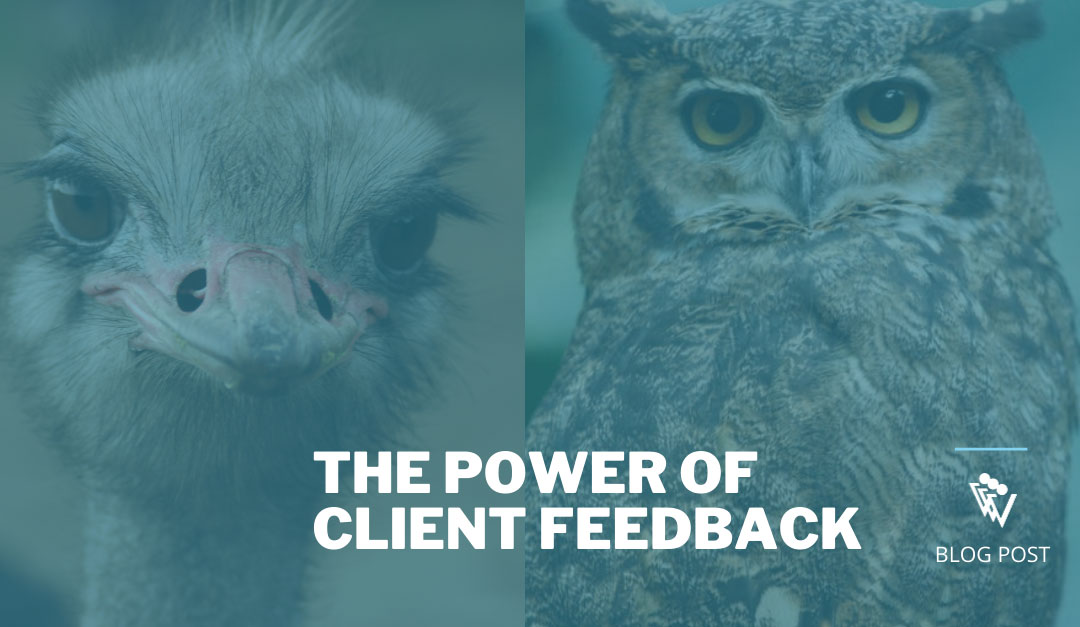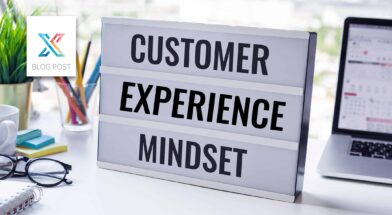The power of client feedback improves relationships, decreases churn rate, and increases revenue. Eighty-five percent of small and mid-size enterprises (SMEs) say client feedback has been beneficial to their business in some way. This is especially true for professional service providers and anyone whose business depends on having clients or benefits from client referrals.
Do you want to know what your clients think about you, your processes, and the service you provide? We hear it all the time. The answer is often, "no". Customer feedback is challenging and scary, but it's better than watching the business slowly die without knowing why.
So just ask them. When you ask for feedback from clients, you are proactively enhancing the relationship by letting your client know you care about them. And, it gives you the opportunity to address concerns over the course of the project or relationship. Proactive feedback requests also indicate that you’re committed to delivering the best possible work. It also shows you value the client’s needs and desires enough to listen.
A 2011 Gallup poll showed companies that employ regular feedback practices have a nearly 15 percent lower turnover rate than companies that don’t. This applies to client relationships as well. The poll might be a decade old but the lesson holds true: When you create the opportunity for regular feedback, you decrease the likelihood of losing a client.
Voice of the Customer
Voice of the customer (VOC) feedback practices don’t just happen. Planning is key. When you begin the process, discuss whether your client prefers formal satisfaction surveys, regular status updates, or informal conversations. This will help you understand your client and make it easy for them to tell you what’s working well, and more importantly, what isn’t.
One of our clients requested feedback from a long-time client who responded to the email request with a request to meet in person rather than provide feedback online. The meeting was mutually beneficial and improved on an already strong relationship.
The most important thing to remember about client feedback is that it means nothing without concrete actions. Having a plan in place to address concerns or criticisms shows you’re committed to improving your business processes and shows clients you listen and value what they share.
Feedback doesn’t just help with current clients. When you solicit VOC feedback on completed projects, you make it possible to improve your performance for future clients. Not only that but when you take the time to truly listen to clients, you may increase the possibility of referrals.
Listening Pays
Client Savvy recently had one client who received a score slightly below “met expectations,” with regards to budget and billing from a $1 million per year client. After having a conversation, they learned that their client did not like to deal with minor change orders. They created a real hassle to get them approved. After a conversation, they were able to add a $100,000 contingency on every project to avoid ever sending the client a change order.
Their client was happy to not have to deal with change orders and resulted in more profitable projects. They also began asking other clients if they’d be amenable to adding a contingency to the bid to avoid change orders. A “win-win” for all parties.
Asking for feedback several times, from multiple stakeholders over the course of a long-term project is invaluable. Getting feedback in regular intervals lets you identify concerns a stakeholder may have while the project is still in process. This enables you to address the concerns prior to project completion so the end result will meet or exceed client expectations.
The more you ask for feedback, the more you will receive. The more feedback you receive, the greater the opportunity for successful, long-term, mutually beneficial client relationships. Here's a case study to prove it.
Let us know if you’d like to begin collecting data-driven VOC feedback from clients to drive revenue, referrals, and repeat business.
Want to learn more about client experience and employee experience? Join us at CXps, the CX community for professional services.





